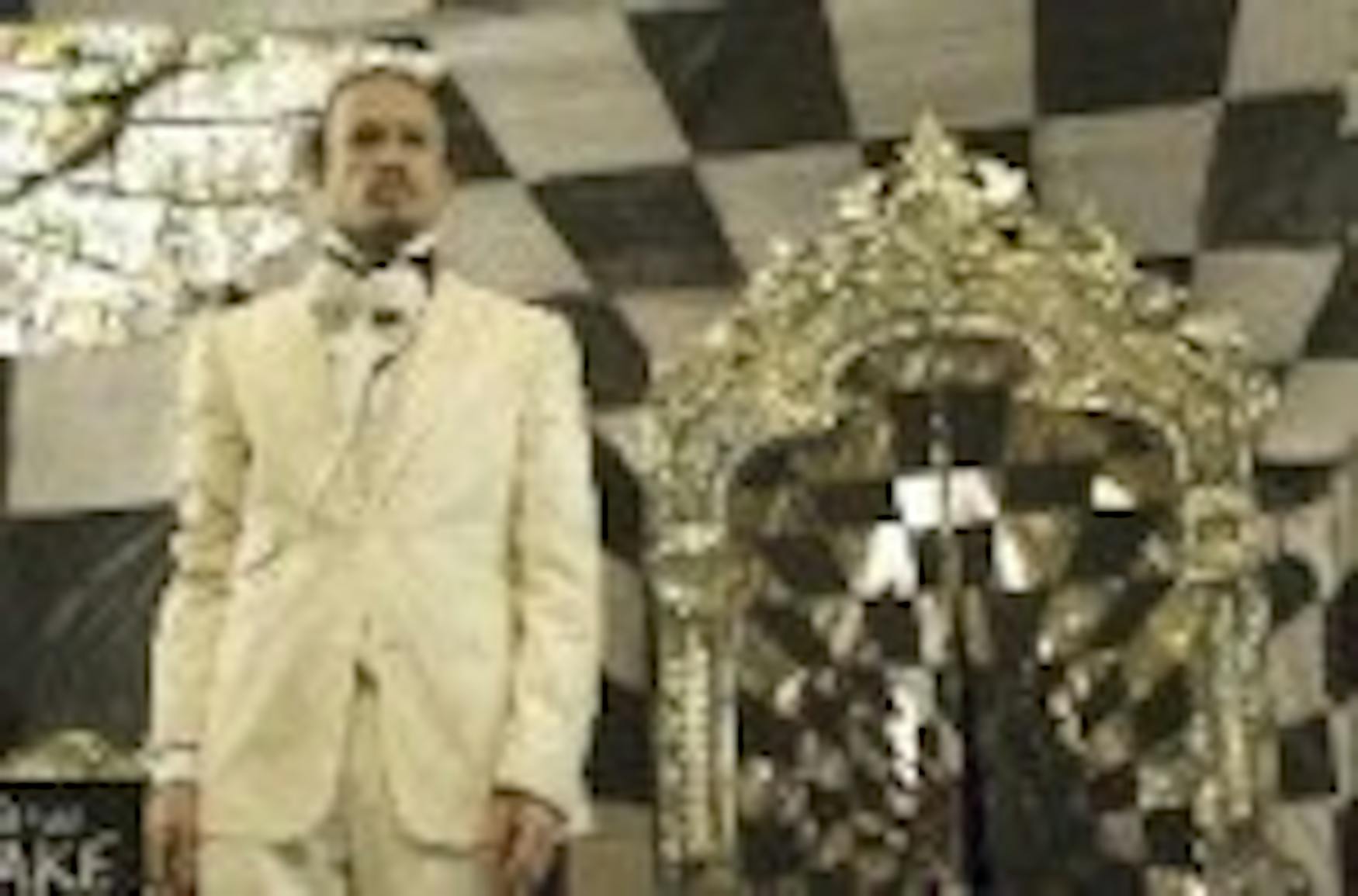Parnassus' will be Ledger's legacy
Before watching Terry Gilliam's latest film, The Imaginarium of Doctor Parnassus, you have to know what went on behind the scenes. This wasn't just Heath Ledger's last movie; the late actor actually died during filming, leaving Gilliam to cast Johnny Depp, Jude Law and Colin Farrell in place of Ledger for the rest of the film. This knowledge lends both an air of sadness and a certain weight to the movie, as the last time Ledger would appear on screen. But even though the movie is undoubtedly connected to Ledger and his death, it isn't overshadowed by it, and under everything that happened behind the scenes, there's still a whimsical, personal story to be told.The movie itself concerns Doctor Parnassus (Christopher Plummer), an immortal, thousand-year-old storyteller traveling around modern-day London in a decrepit, multitier horse-drawn carriage. Along with his daughter (Lily Cole) and his associates, he offers people a chance to go into the "imaginarium," which transports them into their own minds. It is here that they are faced with a choice between good and evil, with the good individuals coming out changed for the better, while the bad emerge belonging to Mr. Nick, the devil himself (Tom Waits), who has long been competing with Parnassus. We learn early on that Nick has had the upper hand for a while, with modern people having little or no time for the doctor's outdated show and having little interest in imagination. This is an especially big problem when it is shown that Nick is set to receive the soul of Parnassus' own daughter unless Parnassus converts five people within three days. Into this bleak scenario comes Tony (Heath Ledger), an amnesiac who finds a way to modernize the show before being forced into the imaginarium himself, where Law, Depp and Farrell portray physical transformations of him each time he goes in.
The interest in simplicity and imagination is very personal for Gilliam. He has always been known for his liberal use of imagination in his films, from his Monty Python days all the way through his career as the director of movies like Brazil and The Adventures of Baron Munchausen, and he extends this trait to the character of Parnassus. Gilliam paints a picture of a man whose unyielding belief and defense of the power of simplicity and imagination is ignored by a general populace too distracted to listen. The personal nature of this movie is what makes the message so believable and effective, with Gilliam trying to tell us that even if we try to ignore it, imagination is still and will always be a powerful, important part of humanity.
Unfortunately, the movie itself sometimes gets in the way of its message. The simplicity of Parnassus' stories and those of the imagination give way to a long, somewhat jumbled plot. If there's one thing wrong with the plot, it's that there's just so much of it. There are scenes that aren't needed, a drawn-out period before Tony's introduction, an unnecessary amount of stops and a climax that's so muddled that I had only a faint grasp of what exactly was going on. If only Gilliam had spent a little more time in the cutting room to make a smoother, more concise story, it would have been much easier to follow, but as it stands, the plot is the weakest part of the whole movie.
Despite this setback, there's still a lot to like about Parnassus. The sequences in the imaginarium are all wonderfully vibrant, with weirdness comparable to the animated sketches from Monty Python. There were times I felt like I was watching a surrealist painting as much as a movie, and I say that in the best possible way. Another plus comes in Ledger's and Waits' performances. Ledger is great, and after seeing his portrayal of the Joker in The Dark Knight, it's almost surprising to see him do comedy. But Waits is a pure marvel as Mr. Nick: He absolutely steals every scene he's in. After all I've said about how confused I was around the end, his performance kept it enjoyable for me despite my confusion. That, my friends, is talent. I was also surprised by how well Gilliam's usage of different actors for Tony worked. It wasn't completely perfect, but the changes were surprisingly subtle, and I truly have to applaud Gilliam on that.
Overall, the movie gets more right than it gets wrong. Parnassus rises above its subpar plot by being a visually stunning joyride with a heart: Gilliam wants to tell us that imagination still has a place in this world, and a pretty important one at that. If that's not enough for you, this is also the last time you'll be able to see Heath Ledger on the big screen. That alone is worth the price of admission.



Please note All comments are eligible for publication in The Justice.